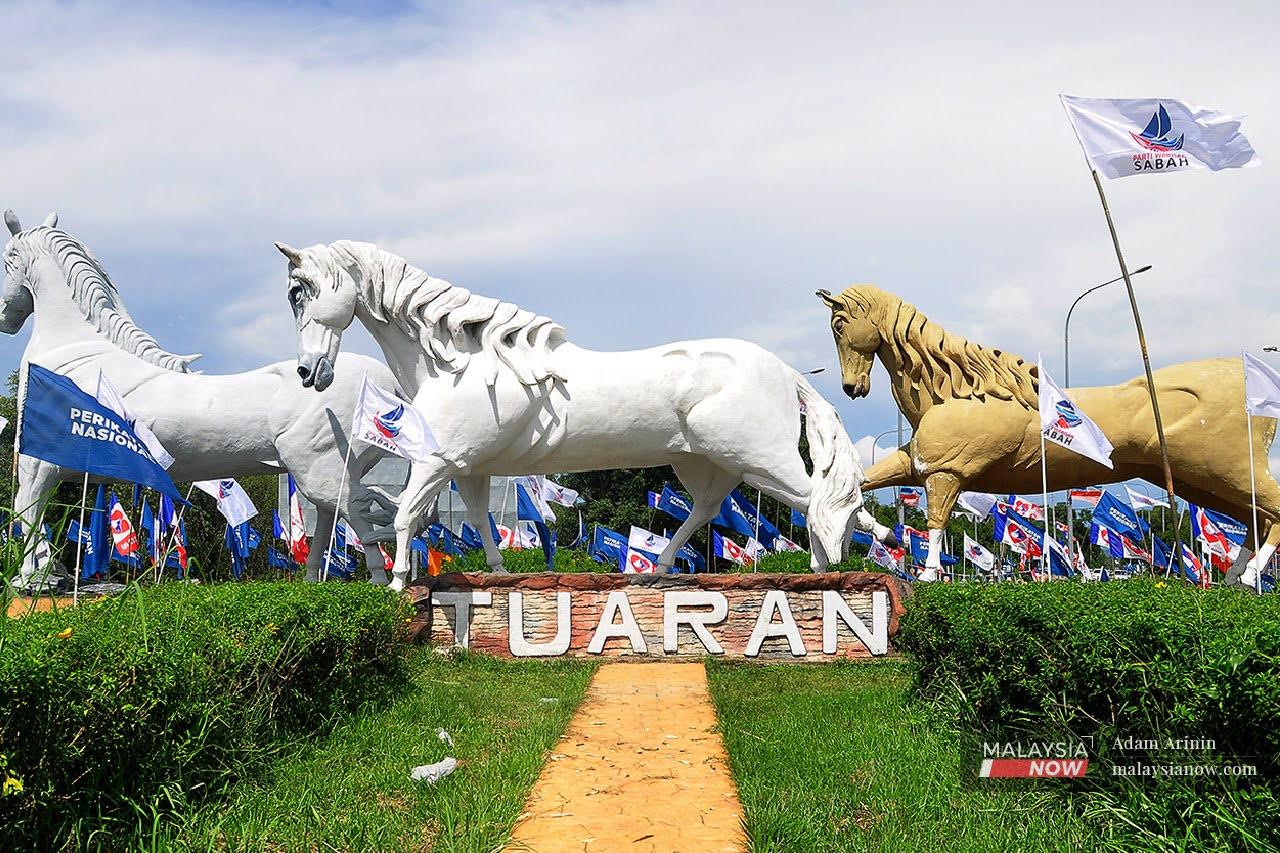5 hot topics ahead of Sabah polls
Candidates are zooming in on issues that are likely to affect voters' decisions, including development in the state and the lack of clean water supply.
Just In
With just two days to go before voters decide on their next state government, the race for support in Sabah is heating up, with candidates and parties alike zooming in on issues likely to influence the selection process.
So-called hot topics which have featured heavily throughout the campaign period include the giving of land grants, the matter of local governance, a candidate’s remarks on the 2013 Sulu incursion in Lahad Datu, the issue of clean water supply, and the state’s economic development.
Land grants
During the 14th general election in May 2018, Warisan pledged in its manifesto to give land grants to the people of Sabah.
MalaysiaNow understands that Warisan president Shafie Apdal, who is also the incumbent chief minister, personally travelled to each district in the state to hand out the grants after the dissolution of the state assembly on July 30.
According to the Chief Minister’s Office, 10,686 native land titles were handed out throughout Shafie’s 26 months in power.
‘Sabah for Sabahans’
The matter of local representation appeared early on in the campaign period, with parties saying that only those originating from Sabah were entitled to represent the people.
Usno, Upko, Warisan and Umno were among those who broadcast this view, with Sabah Umno saying it had been granted autonomy in the state by party president Ahmad Zahid Hamidi.
However, Warisan insists that Umno is a peninsula-based party and will not fight for the rights of Sabahans.
Barisan Nasional (BN) meanwhile maintains that Warisan is not a true Sabah party given the inclusion of peninsula-based outfits DAP, PKR, and Amanah in its coalition, dubbed “Warisan Plus”.
The slogan it spread during its campaign was “a vote for Warisan means a vote for DAP”.
And Usno, which was dissolved in the 1990s before being revived in 2013, asserts that it is the “original” Sabah party as it was established in the state.
Sulu incursion
Warisan’s Segama candidate Mohamaddin Ketapi created a stir when he said on the campaign trail in Lahad Datu that security forces in the 2013 stand-off with Sulu militants in Tanduo had fought with “chickens and dogs”.
His remarks which went viral sparked a backlash from many who accused him of trivialising the sacrifices of the security forces, 10 of whom died in the conflict.
Mohamaddin, a member of Warisan’s Supreme Council, later apologised for his words, maintaining however that he had never insulted those who lost their lives.
He said he was only highlighting the present-day difficulties faced by security forces due to what he called BN’s failure to strengthen the country’s border assets.
Clean water supply
Fifty-seven years after joining Malaya and Sarawak to form the federation of Malaysia, Sabah still struggles with the long-standing problem of getting clean water.
This is especially the case for those who live in water villages, which are built on stilts above the sea.
In its election manifesto, Warisan promised to resolve the problem. However, the Covid-19 pandemic which hit Malaysia earlier this year put a halt to the project meant to ensure the supply of clean water to homes.
In the meantime, villagers are forced to buy clean water in barrels at RM7 per 220 litres.
Economic development
Whether in the city or the countryside, the matter of economic development lies close to the heart of Sabahans.
According to the statistics department, Sabah was ranked as the poorest state in the country last year with 19.5% or nearly 100,000 households living in poverty.
The highest poverty levels were recorded in the districts of Tongod, Pitas, Kota Marudu, Beluran and Telupid.
Notwithstanding the perennial nature of some of these issues, political analyst Musli Oli believes the opposing parties are tackling them with a positive attitude.
“The matter of land grants was successfully neutralised by the opposition as the majority of applications and approvals occurred before any change of government,” he said.
As for the matter of infrastructure, he said any difficulty in addressing problems was due to economic obstacles.
But he said Mohamaddin’s remarks had damaged Warisan’s image in the election.
He also dismissed the issue of local identity, saying it would not be a deciding factor in the polls.
“‘Sabah for Sabahans’ is no longer an issue,” he told MalaysiaNow. “Everyone is championing it. There’s no more excitement about it like there used to be.”
Subscribe to our newsletter
To be updated with all the latest news and analyses daily.
